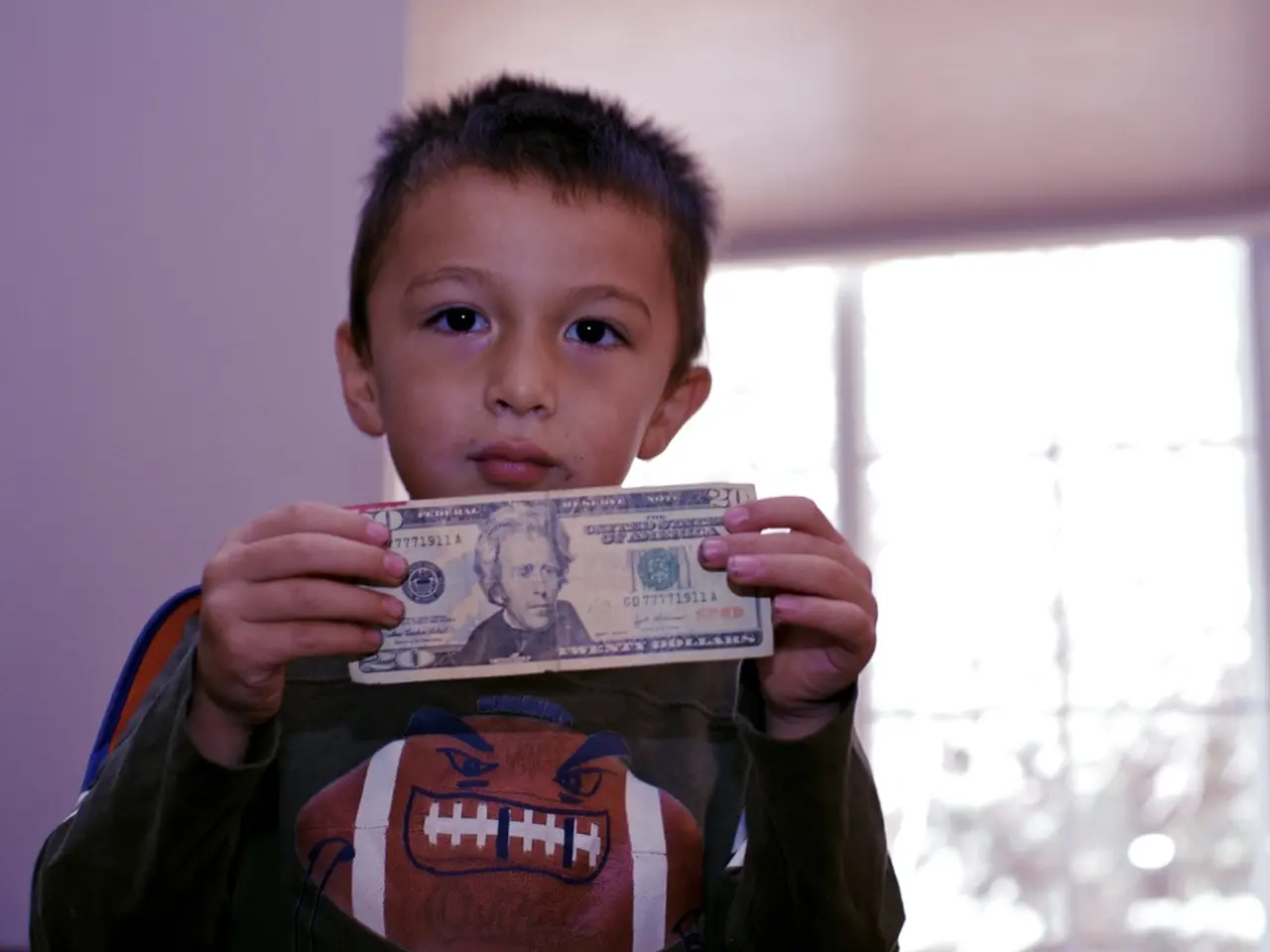Techniques for Instilling Financial Responsibility in Children in a Constructive Manner
In today's world, teaching kids about money has become more important than ever. Financial literacy and money education are crucial for setting children up for success in managing their money for years to come. Here are some effective strategies for teaching kids about money and developing good money habits.
Hands-on Learning with Real Money
Encourage children to identify, count, and handle coins and notes through games or everyday transactions. Setting prices on items or role-playing store transactions builds real-world math and money skills. This hands-on approach helps kids grasp the value of money and its practical use.
Balancing Saving and Spending
Teach the importance of saving by explaining why we save and using clear examples like saving for a special purchase. Simultaneously, guide children to understand spending as making choices and trade-offs between wants and needs. Using allowance management to practice budgeting decisions can be very effective.
Entrepreneurship-Based Learning
Encourage simple business projects suited to their age, such as lemonade stands or crafts, to let kids earn money and experience budgeting, saving, reinvesting, and philanthropy firsthand. This approach helps children understand the full cycle of money management and fosters goal setting, tracking progress, and learning from successes and setbacks.
Regular Family Money Conversations
Schedule brief weekly discussions about money that are positive and tailored to the child's age. Use these meetings to answer questions, review spending or saving goals, and reinforce concepts in a supportive setting. Younger children might count change together, while teens can discuss budgets.
Savings Challenges and Goal Setting
Introduce savings challenges connected to meaningful goals, making progress visible with charts or jars, and celebrate milestones to build confidence and motivation.
Real-world Practice
Encourage children to take increasing responsibility for money transactions appropriate to their age, such as paying for small items under supervision and later comparison shopping with parents. This experience helps build confidence and practical skills.
Explain the Origin and Purpose of Money
Start with basic explanations about what money is, how people earn it, and why we make financial choices. Relate lessons to tangible examples in their lives, such as saving for a bike or a toy, to make concepts relatable and empower children to set achievable goals.
As kids get older, they can start making simple budgets for their money, teaching them to track their spending and make smart budget changes. Financial education can be made fun and engaging for children through games, online activities, and books about money.
Parents play a big role in teaching kids about money, sharing knowledge, setting good examples, and involving kids in financial tasks. Encouraging kids to think about what they really need before buying something helps them avoid buying things on impulse. Technology can be leveraged to enhance financial education for children, offering apps, games, and online resources.
Teaching kids about money early helps them avoid debt and save more, leading to better credit scores as adults. Giving debit cards to teens teaches them to spend wisely and budget. Teaching kids the value of waiting for what they want builds patience and discipline. By being active in teaching, families can prepare their kids for a bright financial future.
- To foster a more equitable and consistent understanding of money management, parents should engage in regular family discussions about finance from a young age, taking care to tailor conversations to each child's level.
- To instill good personal-finance habits, it's essential to balance teaching children the importance of saving with the understanding of spending as making choices and trade-offs between wants and needs, such as through allowance management.
- For a comprehensive educational experience, consider introducing entrepreneurship-based learning, where children participate in simple business projects like lemonade stands or crafts to learn firsthand about budgeting, saving, reinvesting, and philanthropy.
- To ensure respect for money's value is grounded in practical experiences, encourage hands-on learning with real money, like having children identify, count, and handle coins and notes through games or everyday transactions.




